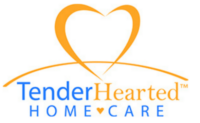Signs and Symptoms of Alcohol Abuse in the Elderly
Alcohol abuse is rising among elderly Americans but for numerous reasons, it is not often recognized by family caregivers. When it is not brought to a doctor’s attention, the elderly person can’t receive the specialized help they need to start recovery. Family caregivers may not see the harm in their elderly relative’s drinking habits. However, they need to recognize the signs and symptoms of alcohol abuse in the elderly to make sure they don’t negatively affect their physical and mental health.
Lexington NC – Signs and Symptoms of Alcohol Abuse in the Elderly ” width=”300″ height=”204″ /> Homecare Lexington NC – Signs and Symptoms of Alcohol Abuse in the ElderlySeniors and Alcohol Addiction
Nearly a third of alcoholic seniors have struggled with drinking their entire lives. Turning to drinking is nothing new for this group and they have lived a long time with alcohol-related issues. This group is classed as early onset alcoholism.
For those with late onset alcoholism, their addiction started differently. Usually, this group of seniors started drinking regularly when they faced a life-changing event or trauma, such as a major surgery, loss of a spouse, retirement, relocation, chronic illness, and more. They turn to alcohol to help alter their mood, suppress negative emotions and avoid the hardships associated with aging.
There are several things that can cause bad drinking habits in the elderly. The most common include empty nest syndrome, losing friends, relocating, retirement, death of a spouse, chronic illness, surgery, depression and more.
How Alcohol Affects the Elderly
The pharmacologic changes that the body undergoes due to aging make alcohol consumption particularly harmful to the elderly. Alcohol directly affects the brain’s neurotransmitters. When an elderly person drinks alcohol, it triggers the release of endorphins in the body. These are released in the brain, where they generate intense feelings of happiness. Because that feels good, the elderly person’s body desires that feeling again and again. It’s then that cravings and addiction form. In no time, elderly adults are abusing alcohol and dealing with a number of health issues as a result.
They are more likely to suffer with interactions between alcohol and prescription drugs. Also, seniors are less able to tolerate alcohol due to physical changes like reduced body mass and brain development. Adding alcoholism to any number of chronic conditions and diseases means that the elderly person has an uphill battle toward recovery.
Signs and Symptoms of Alcohol Abuse in Seniors
Alcohol addiction can manifest in a number of different ways, especially in seniors. Among the most common symptoms are cognition problems, memory lapses, chronic pain, changes in sleeping and eating habits, a desire to be alone, cutting off friends and family, unexplained bruising, lying about drinking, hiding alcohol, and turning to drinking to deal with emotional situation. These symptoms reveal an elderly person that may need a family caregiver to push them toward a doctor visit and eventually toward treatment.
A doctor can point family caregivers and their aging relatives toward an alcoholic treatment center that has specific experience in homecare and rehab for seniors. The recovery process will look a little different for them and such programs are designed to help seniors that are facing alcohol addiction.
Source: https://www.alcoholrehabguide.org/resources/alcoholism-in-seniors/
If you or an aging loved one are considering Homecare Services in Lexington NC, please contact the caring staff at TenderHearted Home Care today. (704) 612-4132.
- Six Areas Your Loved One May Need Help With During the Early Stages of Alzheimer’s Disease - May 8, 2025
- What Harms Senior Mental Health? - April 23, 2025
- How 24-Hour Home Care Can Protect Your Senior Parent - April 4, 2025

